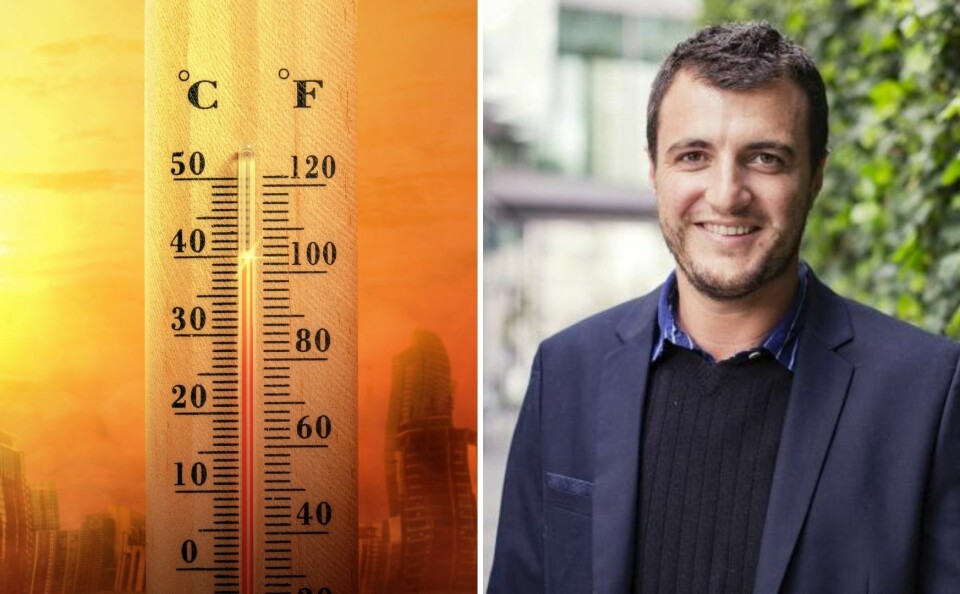-
More communes in France distribute Asian hornet traps
Residents are increasingly receiving help, with now the best time to capture the queens
-
Drinking tap water restricted for children in south-west France communes
Haute Garonne prefecture says the measure is precautionary and due to high chlorate levels
-
France targets imports from South America over banned chemical concerns
Avocados, mangoes, and cherries among food items set to be tested before entry
June heatwave in France prompts huge ‘cool cities’ budget, but no plan
Experts tell us how they would use the €500million fund to lower temperatures in built up areas

A €500 million budget to keep cities cooler has been announced after June’s heatwave saw temperatures nudge – or exceed – 40C across France.
The south west seaside resort of Biarritz saw its all-time highest temperature of 42.9C, and nearly three-quarters of the country’s population, some 45 million people, were issued with red or orange heat alerts.
Meteorologists said a static depression near the Azores had caused a circular airflow, sending super-hot air from the Sahara over France via Spain.
It is something which happens fairly regularly but this year it occurred exceptionally early, and the heatwave of five days was longer than usual.
Budget pledge to win votes
With the second-round legislative elections taking place during the peak of the heatwave, the government was keen to show it was doing something, although details of where the promised €500million is coming from and how it will be spent were left for later.
Cities hotter than countryside
The focus on cities, however, is because they generally fare worse in periods of extreme heat.
There was a 10C difference between temperatures in cities such as Toulouse and the surrounding countryside during this heatwave.
Plant and maintain trees
Marc Barra, an ecologist for the government’s Agence régionale de la biodiversité d’Ile de France, said he expects some of the money will be used to plant more trees in cities.
“There are lots of studies showing temperatures are lower by 5C to 6C in and near large parks with trees,” he said.
“And having trees on the sides of roads reduces temperatures by 2C or 3C.
“Obviously, in a city like Paris, which is very densely built-up, it is not always easy to plant new trees.
“However, just having a policy of looking after existing trees, and replacing them when they are too old, is a good start.
“Trees are cut down for all sorts of developments and if there is no other way, then local authorities must insist new ones are planted nearby and looked after.”
Let rain soakaway
The government’s energy agency, Ademe, has published a booklet advising how cities can be cooled.
Along with vegetation, it suggests painting roofs white to reflect heat and retaining winding roads, which are cooler than those aligned in straight grid patterns.
It also recommends more effort to allow rainwater to soak away, instead of being channelled elsewhere, because permeable soil encourages vegetation and has a cooling effect.
Turn waste grounds into parks
Mr Barra said it was essential that initiatives like these were included in planning documents wherever possible.
“It takes years for changes in urban planning documents to go through, but France’s towns and cities must start thinking along these lines now.”
He pointed out that many local initiatives are already promoting more greenery and trees in cities.
“Industrial waste grounds, in particular, can be used,” he said.
“Instead of clinging on to the idea that they should be used again for industry and, if that is not possible, for housing, there are examples where work has started to take up the concrete and turn these sites into parks.”
Air conditioning is not an answer
Ademe suggests that another way of cooling cities is to uncover rivers and streams which have been routed into tunnels so roads can be built over them.
“It is important to propose solutions other than the increased use of air conditioners,” the agency wrote.
“Air conditioning has multiple negative impacts, including raising the temperature around the area where it is used.
“There are also issues with energy consumption and the greenhouse gases from fluids used in the air conditioner during its lifecycle.”
Related articles
France’s official average temperature rises by 0.4C after review
June 2022: a record-breaking month for weather in France
Ça crame: French phrases to describe when the weather is too hot
























